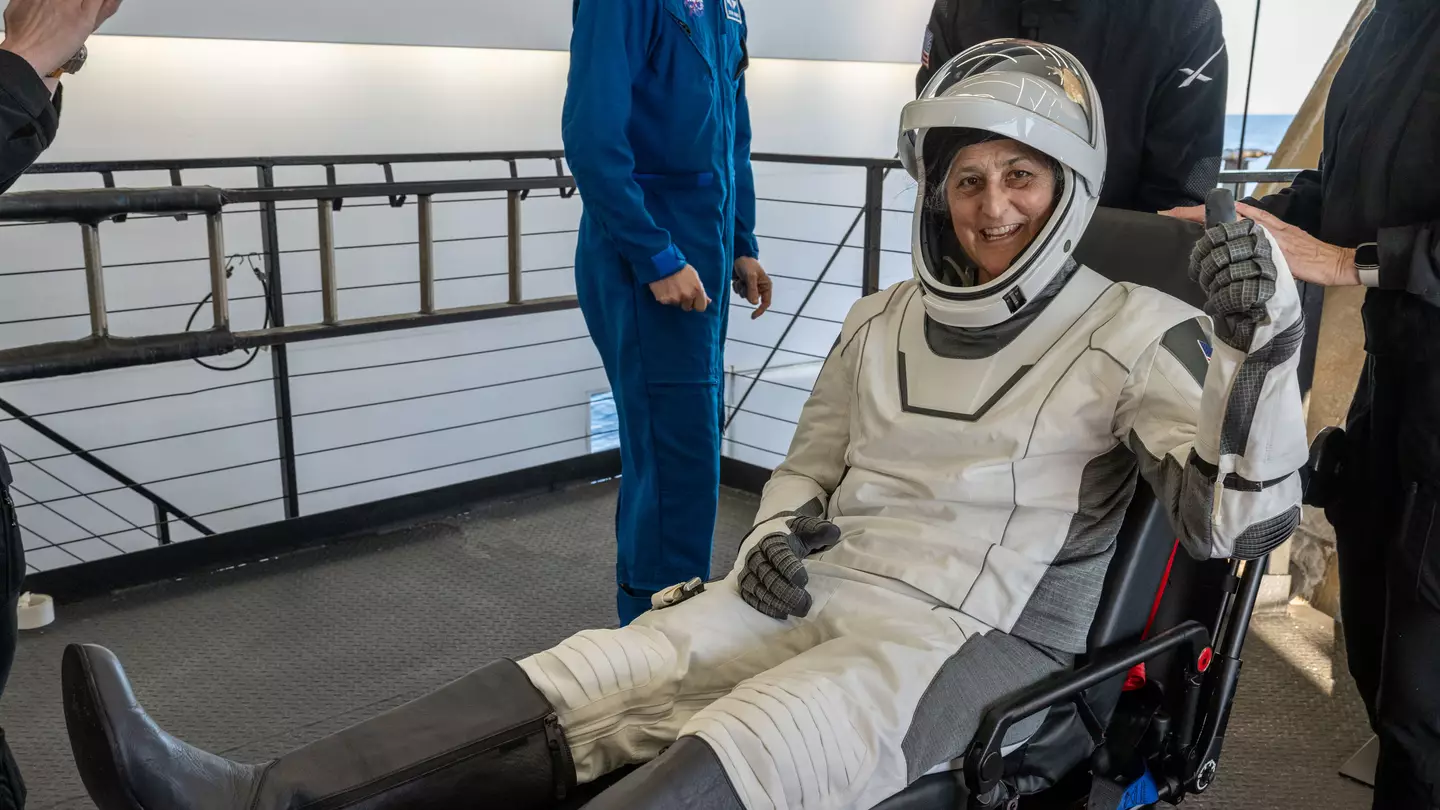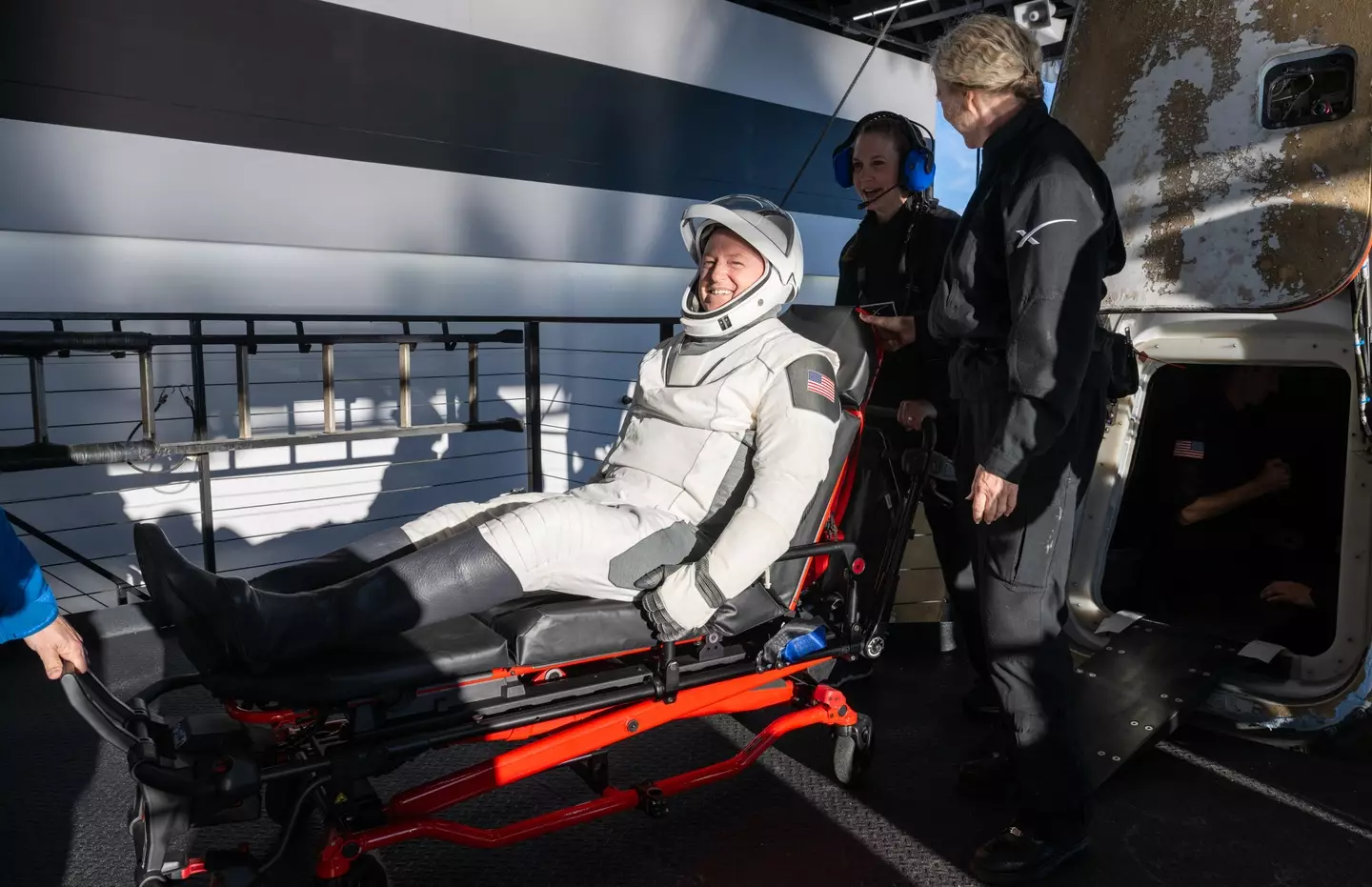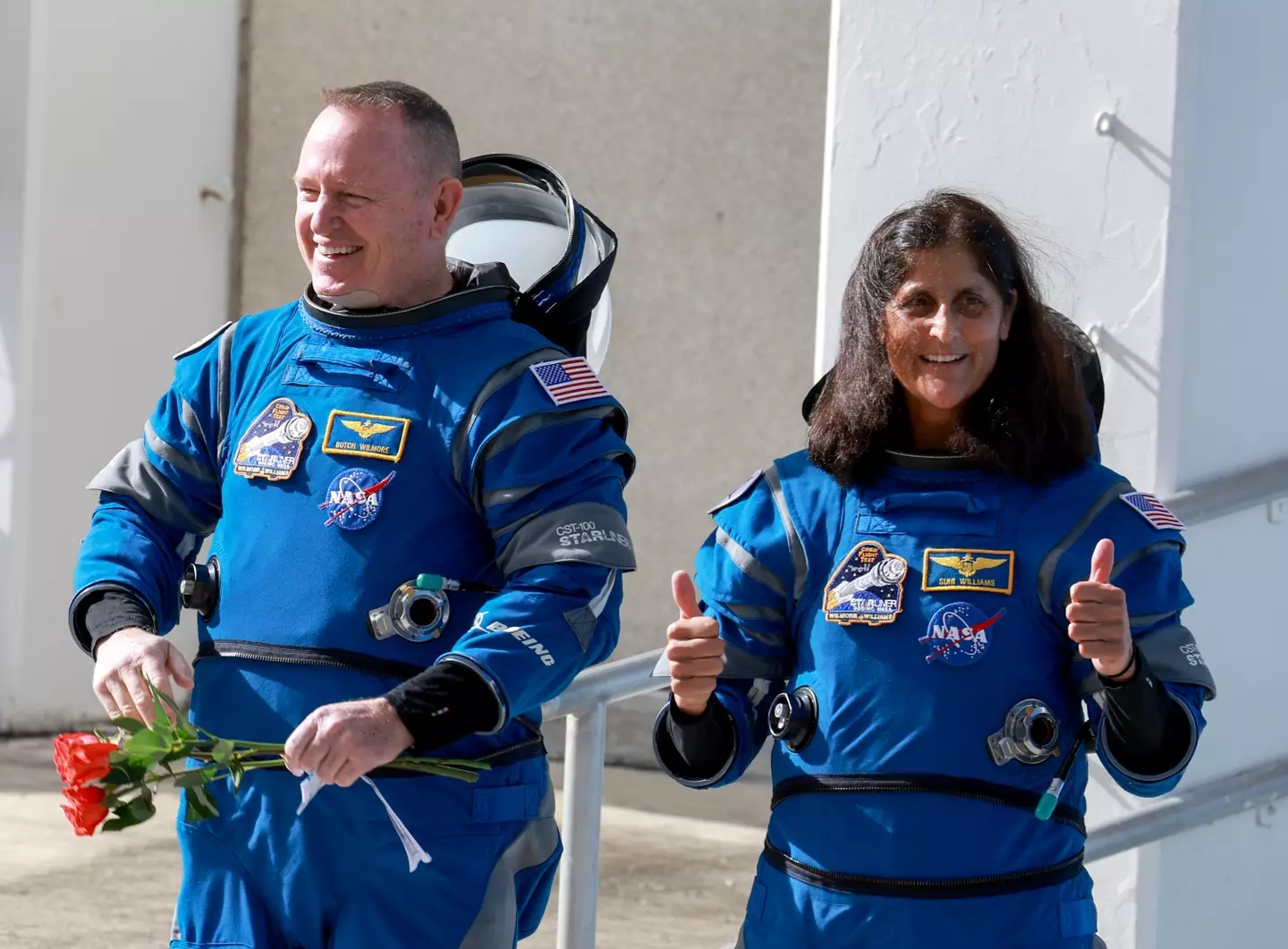
'Stranded' NASA astronauts Sunita 'Suni' Williams and Barry 'Butch' Wilmore finally touched down yesterday (18 March) after more than nine months in space.
The pair were only meant to be on the International Space Station for eight days when they left Earth on 5 June last year, but were forced to prolong their stay when their faulty Boeing Starliner capsule suffered helium leaks and a thruster malfunction. I hate it when that happens.
Thankfully, their relief crew arrived to take over on Sunday (16 March), meaning they could head home after a casual 286 days in space - 278 days longer than anticipated when they launched.
When their capsule was opened, both Williams and Wilmore were carried out of the spacecraft and placed on stretchers, despite the fact neither was suffering any injury or illness.
Advert

According to experts, this is simply protocol for any astronauts returning to Earth from space.
John DeWitt, director of applied sports science at Rice University in Texas - and a former senior scientist at NASA’s Johnson Space Center - told LiveScience: "A lot of them don't want to be brought out on a stretcher, but they're told they have to be."
When astronauts touch down, they aren’t allowed to walk immediately due to temporary changes that happen in space; being stretchered away is simply part of NASA’s strict safety procedures.
This is because people sometimes experience dizziness and nausea when they travel home, similar to how some suffer motion sickness on a roller coaster or boat.
Our bodies are hard-wired to take advantage of gravity, but that obviously becomes difficult in a space habitat like the ISS and means astronauts are forced to adapt to an entirely new environment.
However, then they return to Earth - and gravity - they have to readjust all over again, which DeWitt said causes ‘space motion sickness’.
Prolonged periods in space can also lead to gradual muscle and bone density loss, as astronauts don’t need to use their muscles as much as we do on Earth.

To counter this, astronauts have onboard equipment so that they can follow a daily exercise regime.
Williams told DeWitt via email: "Been working out for the past nine months.
"We feel strong and ready to tackle Earth's gravity."
DeWitt added: "They're in good spirits and feel very confident that there's not going to be any major issues because of being on the space station so long from a physiological perspective.
"They're getting exactly what they would have gotten had their trip been planned to be nine months."